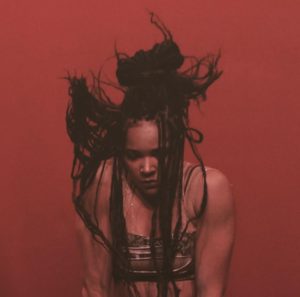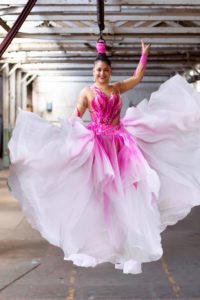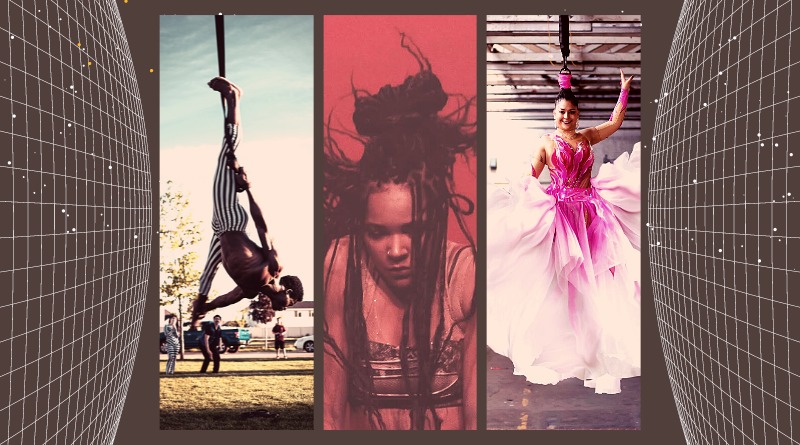CSAW: When Financial Barriers Don’t Exist, Magic Happens
When you fund the projects and ideas of circus artists of color, not only do you help them reach new levels of their craft, but you also help build a bridge that they can cross to be able to inspire others and reach uncharted territories that they may have never imagined.
With its Micro and Tuition Grant Programs for American Circus Artists of Color, the nonprofit CSAW—Connecting Circus Students Around the World—is working to do just that. These grant programs have now awarded over $25,000 in funds to BIPOC circus artists, helping them to cross over into the next chapter of their circus careers and ambitions by eliminating financial barriers.

More specifically, the CSAW Microgrant Program provides a grant of $1,000 a month to a circus artist to fund any and all immediate circus-related needs. Applicants must apply by providing a written grant proposal detailing how they plan to use the grant. Applicants are then chosen by a Selection Committee composed entirely of BIPOC circus artists. A large majority of recipients apply for single-purchase expenses, like a package of private classes with a particular instructor or a specific apparatus to use for training and performances. However, many past grantees have noted that the funds they received provided them with something more than what was written in their proposal.
For November 2020 recipient Cuream Jackson, receiving a CSAW Microgrant proved to be more than just a way to afford a single-point trapeze for his upcoming duo act; it was an opportunity to collaborate and form community with other circus artists of color. During a short interview, Jackson expressed how the trapeze he purchased led him to transform his talents to use in the production of a short film called “Gorgeous.” During the production period, Jackson had the opportunity to work collaboratively and creatively with BIPOC circus artists, film producers, and directors to bring the film to light. It was an experience that he says brought him immense amounts of joy because he was able to find commonality and community with BIPOC artists from various backgrounds, something that he says he values and hopes to continue to have more of in the near future.

Other microgrant recipients coincided with Jackson in that the microgrant led them to discover more opportunities for growth, opening up doors for them to learn and work with the circus community at large. June 2021 recipient Jacqui Ray, a San-Francisco-based contemporary pole dancer and instructor, used her funds to invest in her own professional training by taking private classes in contortion— a skill that is not necessarily easy to learn, due to both its unaffordability and technique. Ray notes that she began taking contortion lessons to strengthen her flexibility technique both on and off the pole. Investing in contortion classes allowed her to learn more about how the human body works and understand the various functions of different muscle groups. In turn, a single microgrant used for the purpose of private training opened up another opportunity for Ray to connect and communicate with her various pole and flexibility students. Ray states that the knowledge she gained during contortion training gave her the ability to transfer skills, exercises, and techniques to her students, eventually helping them reach their own flexibility goals, and possibly inspiring more future contortionists.
The diversity of past CSAW Microgrant recipients is not only astounding for their different skills and talents, but also for the lived experiences that shape the visions they have for the future of circus. One grantee that stands out in this respect is April 2021 recipient Stephanie Little Thunder Morphet-Tepp, also known as “The Flying Brain” for her hair hanging talents. Growing up as a competitive cheerleader and gymnast, Morphet-Tepp always had a deep-rooted love for being active. However, after a life-changing car accident in 2012, the artist struggled to find ways to remain active—that is, until she found circus. She states that circus helped her reclaim her body “as something that [she] loved because it allowed [her] to do things that you wouldn’t think were possible.”

Understanding her own struggles with recovery, Morphet-Tepp decided to invest in her local community by embracing those who had disabilities, lacked body confidence, or were even recovering from injuries. Using her CSAW Microgrant, she invested in the needs of the students enrolled in her teaching program. For example, one of Morphet-Tepp’s students suffers from a condition that caused her to be born with no long bones in her forearms, and had been told by countless teachers that she could not train on the lyra. Learning of this, and understanding the student’s feeling of helplessness due to her own past with inhibitory body injuries, she took the student in and invested in proper equipment and apparatuses to show her just what she was capable of. Because of her CSAW Microgrant, Morphet-Tepp was able to grow as an artist and teacher, and inspire others to do the same.
The work of these three past grantees, as well as that of many others, demonstrates the magic that happens when financial barriers no longer exist. The work that CSAW is doing helps us understand just how far people can go when they are heard, supported, and uplifted.
CSAW will soon be entering the third year of its Microgrant Program and is excited to continue to see the work of all its grant recipients. If you would like to learn more about other past grantees, visit the organization’s website at www.csawcircus.org/financial-aid.
Do you have a story to share? Submit your news story, article or press release.



